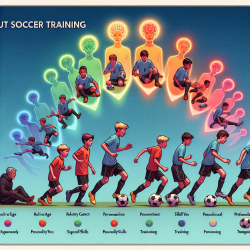Understanding the Impact of Video Games on Child Development
In recent years, the conversation around video games and their potential impact on child development has intensified. As a practitioner dedicated to creating great outcomes for children, it's crucial to understand the latest research and policy responses to problematic video game use. The research paper titled Thinking more broadly about policy responses to problematic video game use: A response to Király et al. (2018) provides valuable insights into this issue.
The Core Issue: Gaming Disorder
The World Health Organization (WHO) defines gaming disorder as a behavior pattern severe enough to result in significant impairment in personal, family, social, educational, or occupational functioning. This definition shifts the focus from debates over terminology to addressing the critical issues of prevention and treatment.
Beyond Governmental Policies: Alternative Approaches
While governmental and legislative policies are often considered first, they are not the only solutions. The paper argues for broader thinking in policy responses, suggesting that non-governmental policies may be more practical and effective. Here are some alternative approaches:
- Scientific and Public Health Organizations: These organizations play a pivotal role in policy development. By adding Internet gaming disorder to the DSM-5, the American Psychiatric Association fueled new research and public awareness. This move also paved the way for potential treatment coverage by insurance companies.
- Parental Controls and Education: Contrary to some claims, there is substantial evidence supporting the efficacy of parental controls. Active mediation, where parents discuss media content with their children, appears to be the most protective. However, restrictions on the amount and content of media use also have multiple benefits.
- Public Education and Media Literacy: Educating parents and the public about the potential risks of gaming is crucial. Public policies could create reliable, valid, and accessible universal rating systems to provide parents with the information they need to make informed decisions.
Empowering Parents and Practitioners
For parents to effectively monitor and set limits on children's media use, they need reliable information and motivation. Public education campaigns can help achieve this by raising awareness about the potential risks of excessive gaming and the importance of setting boundaries.
Conclusion
By broadening our approach to policy responses, we can create more effective solutions to address problematic video game use. As practitioners, it's essential to stay informed about the latest research and policy developments to support the children and families we serve.
To read the original research paper, please follow this link: Thinking more broadly about policy responses to problematic video game use: A response to Király et al. (2018).










